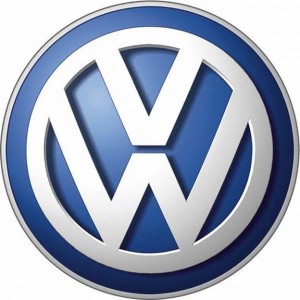
Volkswagen is cutting $1.1 billion from its capital expenditures and limiting spending to only necessities in the wake of the diesel scandal.
(This story has been updated to reflect new disclosures of cheating by Volkswagen.)
Faced with its worst crisis in decades, Volkswagen is slashing capital spending by at least $1.1 billion annually, a move that could cut into product development, plant expansion and other elements of its once-ambitious growth plans.
The German maker is facing a huge financial hit as a result of its diesel emissions cheating scandal, with analysts predicting the ultimate cost could run to $21 billion or even higher. Though few now expect the crisis to threaten the maker’s viability it does appear to mean it will have to drop or delay some models, such as an all-new Phaeton, and curb plans for some new plants and engineering facilities.
“We are operating in uncertain and volatile times and are responding to this,” Volkswagen AG CEO Matthias Mueller said in a statement. “We will strictly prioritize all planned investments and expenditures. As announced, anything that is not absolutely necessary will be cancelled or postponed.”
But Mueller’s comments may not reflect the increased problems Volkswagen faces after the maker this week acknowledged during a meeting with the EPA that it cheated on emissions tests involving another 75,000 vehicles.
Mueller today said the maker’s annual capital spending will be reduced from $13.9 billion to $12.8 billion – still among the highest levels in the global auto industry. But it marks a sharp shift in direction from the upward climb in spending overseen by Mueller’s predecessor Martin Winterkorn, who was forced out just weeks after the diesel scandal broke.
(VW, Audi officials apologizes again, try to move past diesel scandal in L.A. For more, Click Here.)
But Mueller stressed that VW is “not going to make the mistake of economizing on our future,” and will actually increase spending on some key programs. That includes an additional $107 million annually on alternative powertrain technology. The German maker expects to see major growth in battery-based vehicles, its Audi subsidiary this week estimating such vehicles as a new electric SUV due out in 2018 could account for up to 25% of its U.S. sales within a decade.
VW has gotten little good news since the U.S. EPA in mid-September accused it of installing a so-called “defeat device” on 482,000 vehicles sold in the U.S. that were equipped with a 2.0-liter turbodiesel. The software was intended to kick in if one of those vehicles detected it was undergoing emissions testing. Otherwise, emissions of smog-causing oxides of nitrogen could run up to 40 times the mandated level in the U.S.
The maker faces a potential fine of as much as $18 billion for violating the U.S. Clean Air Act, and it could be hit with additional penalties as part of a Justice Department criminal probe. More fines could follow in other markets, and the hundreds of lawsuits facing the company for its diesel cheating could run the figure up by billions more.
VW has said it sold 11 million of the affected vehicles worldwide. And it has since revealed that additional “irregularities” have been uncovered with other models.
Meanwhile, VW officials this week reversed course after initially denying a newer allegation by the EPA that it also cheated on emissions controls with its bigger 3.0-liter turbodiesel. The disclosure impacts about 75,000 more vehicles, some of them sold through the Audi and Porsche brands. And it potentially subjects the maker to another $3.2 billion in fines.
(Click Here for details about Audi’s expectations that EVs will be 25% of sales in the near future.)
On the positive side, a report from Germany indicates the actual cost of repairing the vehicles impacted by the 2.0-liter diesel cheating could be lower than expected. German magazine Wirtschaftswoche said this week the fixes for a 1.6-liter version of the diesel engine could cost as little as 10 Euros, or around $10.74, for a sensor to be added inside the air filter. A software update would also be needed.
It’s unclear if that applies to the 2.0-liter engine, and more may yet be needed for models sold in the States, where diesel emissions standards are the toughest in the world. VW officials have been meeting this week with federal officials to discuss proposed repairs.
(VW suffering brain drain in wake of diesel emissions scandal. Click Here for the story.)
Nonetheless, in a note e-mailed to reporters, Arndt Ellinghorst, of banking advisory firm Evercore ISI, said the fix outlined by Wirtschaftswoche “would be a major relief for the company, its customers and shareholders.”
